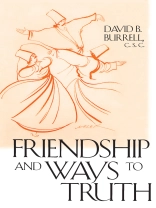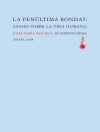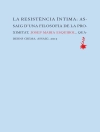The death of a friend is a source of pain and grief for anyone. For David B. Burrell, it is also a source of reflection on the role of friendship in our ongoing pursuit of truth. In this small but penetrating book, Burrell offers five essays that explore friendship as the bond that links us to the religious traditions we embrace in our search for truth. Known for his many and lasting contributions to philosophical theology, Burrell here makes a definitive statement for that field while also continuing the cross-cultural discussion among Christians, Muslims, and Jews.
Burrell considers how friendship can be constitutive of the spiritual exercises one employs to seek truth, and he examines the influences on his thinking of Bernard Lonergan, Stanley Hauerwas, and Augustine to show how friends can open our minds and hearts to interfaith dialogue and the mutual illumination it offers. He also explores cross-cultural understanding through a comparison of the teaching of Aquinas with that of Islam’s al-Ghazali, suggesting that their complementary perspectives can fruitfully expand our view of friendship to include our relationship with God. In the end, he offers a model of friendship as a relationship which gives us the courage to maintain our philosophical pursuits and which helps us to persevere in the face of the radical unknowing which characterizes philosophical theology.
Just as Burrell learns from death that friendship cannot end, he celebrates how each of us can present to another the face of the good as we journey together through life. And just as our journey toward the truth continues forever, he enables us to see that the gift of friendship is not limited to our earthly existence.
Yazar hakkında
David B. Burrell, C.S.C., was Theodore Hesburgh Emeritus Professor in Philosophy and Theology at the University of Notre Dame. He is the author of Knowing the Unknowable God: Ibn-Sina, Maimonides, Aquinas (Notre Dame Press, 1986) and Freedom and Creation in Three Traditions (Notre Dame Press, 1993). He was director of the University’s Jerusalem program, housed at the Tantur Ecumenical Institute, until 2004.












